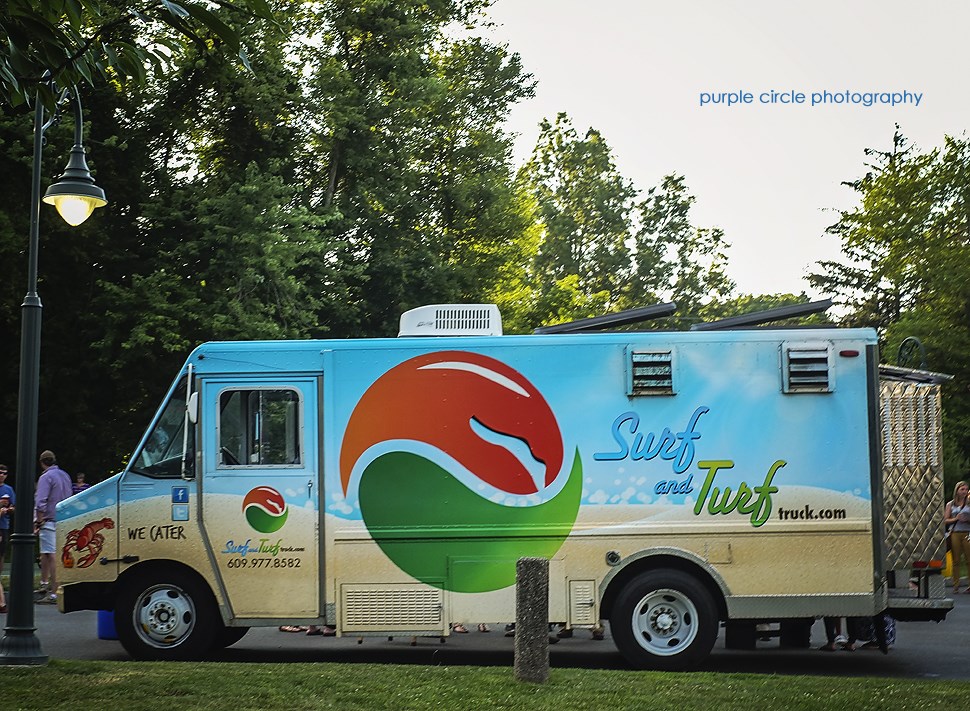At its two bi-monthly meetings in August, the Hopewell Township Committee discussed COVID cases, food truck licenses, and the next phase of the cannabis ordinance.
As the COVID Delta variant continues to prolong the pandemic, Township Health Officer Dawn Marling explained at the August 2 meeting that Hopewell has seen a spike within its own residents. “We were doing about four cases a week during July, and I had five cases this past weekend, so that was a big uptick there. We are seeing cases among vaccinated residents, but again, given that a large number of our residents are vaccinated, that’s not unexpected,” Marling said.
Mayor Julie Blake explained that, even if residents are fully vaccinated, they are encouraged to continue to wear their masks to help stop the spread of the Delta variant. “I do want to remind them to use their best practices. Even I am having a hard time remembering to take a mask into public spaces. As you know, fully vaccinated or not, it’s really important. The CDC has been saying that we [may be] carriers of the virus even despite our vaccination status,” Blake said.
In a previous meeting, the Committee had discussed going back to in-person meetings in September. However, Marling advised that the pandemic is ever-evolving and could change within a month. “I think a lot can change by mid-September. Hopewell Valley isn’t considered one of the high transmission areas at the moment, but to have a crystal ball and say by the middle of September, it would be a wise decision to have a bunch of residents together in a meeting room, that could very well be something we need to pull back from,” she said.
On August 2, the Committee also discussed allowing licensed food trucks to operate within the Township without requiring a permit each time they “set-up shop.” The Committee considered, instead, a streamlined permitting process that would allow a food truck to come into the Township to different venues throughout the year under one annual license. Scott Miccio, an attorney for the Committee, presented the Robbinsville ordinance for the Committee to examine. “I turned to the Robbinsville ordinance [because] they had the scope, and the purpose of their ordinance, [which] I think is similar to what we might be trying to accomplish here in Hopewell,” Miccio said.
Miccio explained that Robbinsville’s ordinance includes an annually renewing license that also requires background checks, fire and health inspections, and specific zoning areas for food trucks to operate. “It requires that food shop truck applicants have insurance. Then, an investigation is performed by the police department, the fire department, and the health department,” Miccio said.
Committee member Micheal Ruger brought up concerns about competition against local restaurants. “The reality is, people have limited money to spend on food, and they have limited appetites. So every time somebody goes to a food truck, they are choosing not to go to a grocery store to buy food, or they’re choosing not to go to a local restaurant,” Ruger said. “My concern primarily has been one of competition. Now, if our local restaurant owners are not concerned about it, then I’m not going to substitute my concern for their concern.”
The Committee instructed counsel to write a resolution to be examined by the Planning Board in October before the Committee makes a final decision.
Although the Committee indicated its expectation on August 2 to have a final vote on cannabis opt-in/opt-out before the August 21 deadline, the intervening weeks produced roadblocks.
As previously covered here, all New Jersey municipalities were required to either opt in or opt out of cannabis-related licensing before August 21, 2021. Municipalities that opted in did so with ordinances specifying what type of operations they would allow. If a municipality chose to entirely opt out, it could still opt in at any time in the future. If it chose to do nothing, it would automatically allow any cannabis business to operate within its jurisdiction.
Blake explained on August 2: “We would like to say that the only conditions, the only licenses that the Hopewell Township Committee is considering at this point are the first and second licenses, which allow for (1) cultivation and (2) manufacturing/processing.”
At its August 16 meeting, with the State deadline looming, the Committee voted to opt out of allowing any cannabis licenses within the Township. However, the Committee also introduced the first reading of a new ordinance to allow cultivation/manufacture in certain areas of the Township.
Miccio explained that, on August 2, the first reading of an ordinance allowing cannabis cultivation/manufacture had been introduced, however in the intervening weeks it had been updated by the Planning Board and certain stakeholders, like the Watershed Institute, to the extent that it was no longer the same document. The revised document then had to be formally introduced as a first reading. Therefore, there was no time to complete the entire ordinance adoption process before the State’s August 21 deadline.
“The main objective of that is just to make sure that we meet the State deadline,” said Miccio, “because if we don’t meet the State deadline, [all cannabis licenses] will be forced upon the Township of Hopewell and we won’t have a choice of how to roll out.”
According to the revised draft ordinance, cannabis cultivation/manufacturing will only be allowed in the “Valley Resource Conservation (VRC)” zone. Moreover, it will only be allowed on parcels of at least 50 acres with 15% lot coverage. Finally, the farm must be located on a State or County road and not more than two miles from an interstate interchange. See map below of areas that meet this criteria.

The ordinance specifies requirements for greenhouse interior lighting (blackout shades must be used dusk to dawn); noise generated cannot exceed State and Township regulations, the odors from cultivation and storage of cannabis must be contained so that “a reasonable person of normal sensitivity” at the buildings” property line cannot detect it, and pollen must be contained. Further, no one can operate a cannabis cultivation/manufacturing site without a State license.
The new ordinance will become part of the zoning requirements for the Valley Resource Conservation District and thus a “super notice” of all Hopewell residents within that zone is required prior to the second reading of it in September. Blake explained that residents will receive this notice in the mail.
“It won’t affect everyone in that area,” she said, “[but] if you live in that zoning area, or near it, you will be receiving two mailings, one certified and one uncertified.” The above map will be included with the notice.
MercerMe staff helped write this article.




